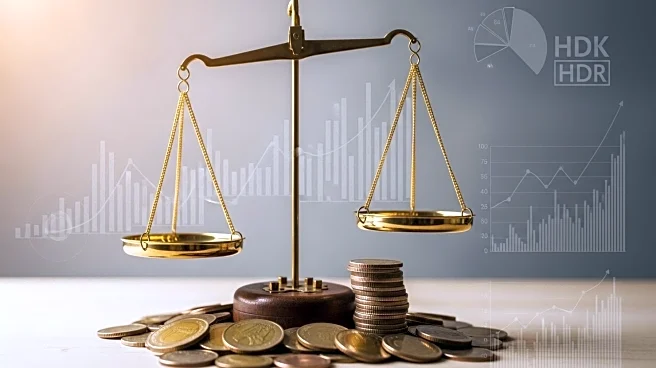What is the story about?
What's Happening?
Forecasters anticipate Thursday's Consumer Price Index (CPI) report to reveal a 2.9% increase in consumer prices over the past 12 months, marking the highest annual inflation since January. The report is expected to show core inflation, excluding food and energy, at 3.1%. Economists attribute rising prices to tariffs imposed by President Trump, which have increased costs for consumers. The Federal Reserve is widely expected to cut interest rates to boost the economy, despite inflation remaining above its 2% target. The report will influence the Fed's monetary policy decisions at its upcoming meeting.
Why It's Important?
The anticipated rise in inflation is significant for U.S. economic policy and consumer spending. Higher prices can erode purchasing power and impact household budgets, particularly if tariffs continue to push costs upward. The Federal Reserve's response to inflation data will be crucial in shaping monetary policy and interest rates. A rate cut could stimulate economic growth but may also risk further inflationary pressures. The situation underscores the challenges of balancing inflation control with economic stimulus, with potential implications for financial markets and consumer confidence.
What's Next?
The Federal Reserve will closely monitor the CPI report and its implications for inflation and economic growth. The central bank's decision on interest rates will be influenced by the report's findings, with markets expecting a rate cut at the September meeting. Policymakers must weigh the risks of inflation against the need to support the economy amid hiring slowdowns. The ongoing impact of tariffs on consumer prices will be a key consideration in future monetary policy decisions. Stakeholders will watch for signals from the Fed on its strategy for managing inflation and supporting economic stability.
















